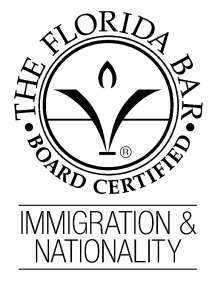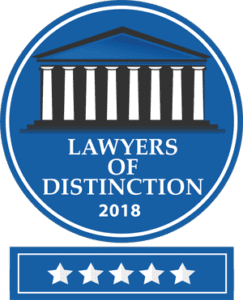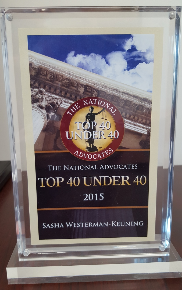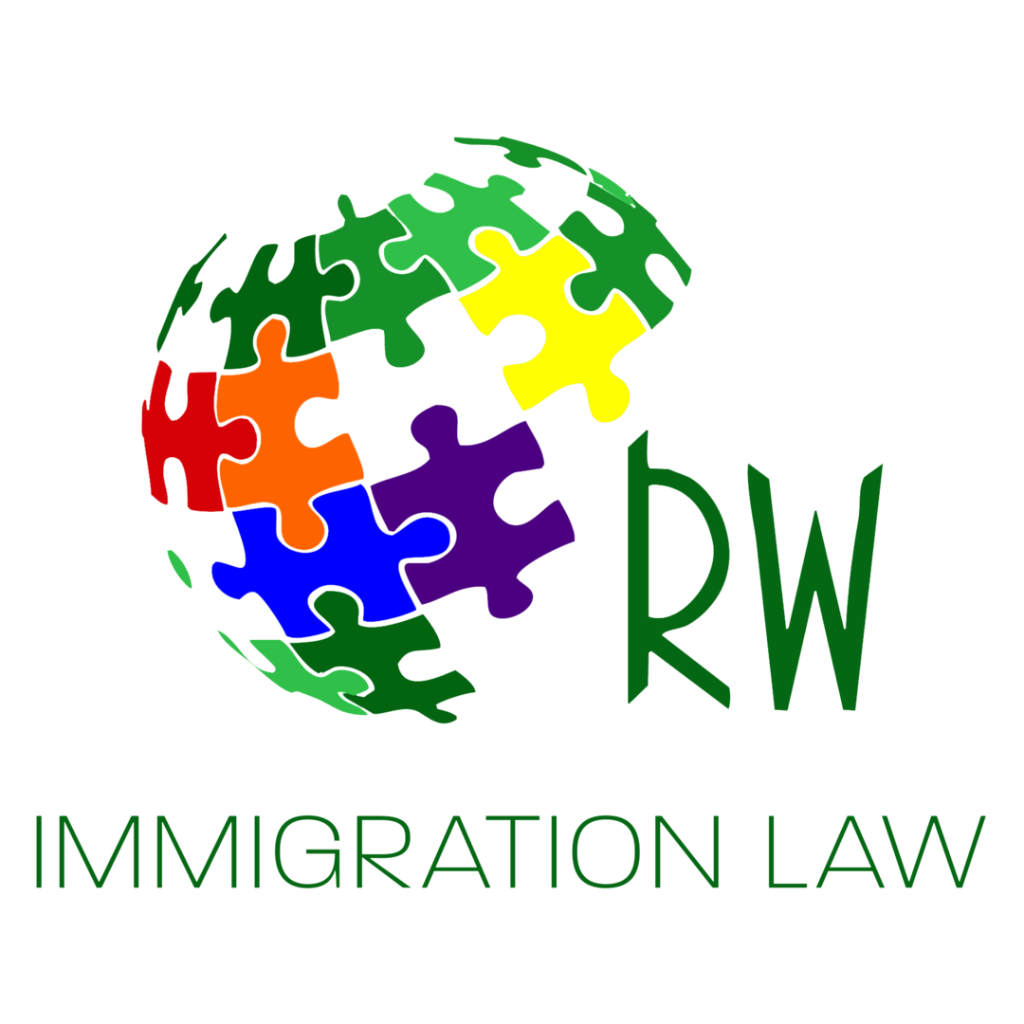EMPLOYMENT-BASED VISAs - work in the U.S.
Rostova Westerman Law Group, P.A. handles all types of employment-based immigrant and nonimmigrant visa petitions. We help individuals seeking to work in the U.S. as well as companies seeking to employ foreign workers with work visas and employment-based petitions in the Miami and Fort Lauderdale areas and throughout the U.S. Our firm has experience in filing the following types of nonimmigrant visas: E-2 investor visas; F-1 student visas; H-1B professional visas; J-1 trainee and intern visas, L-1 visas for multi-national executives or managers; M-1 vocational student visas; O-1 visas for aliens of extraordinary ability; P-1 visas for athletes of international recognition; P-3 cultural performers; Q visas for cultural exchange programs, and R-1 visas for religious workers. Our law firm also assists individuals in applying for permanent residency through his or her employer by filing a labor certification, a national interest waiver, or as multinational executives and managers.
Additionally, our office has vast experience in filing applications for permanent residency as an alien of extraordinary ability in the Arts, Athletics, Science or Business, known as an EB1-1 immigrant visa petition. This residency category does not require a U.S. employer as a sponsor and permits the foreign national to self-petition. We have obtained permanent residency for dozens of talented aliens with occupations such as musicians, artists,fashion designers, actors, sculptors, writers, creative directors, racecar drivers, tennis players, and doctors/researchers.
Some of the most common types of nonimmigrant employment-based visa petitions are described in detail below:
L-1 VISAS FOR MULTI-NATIONAL EXECUTIVES AND MANAGERS
The L-1 visa was established to allow multinational executives, managers and employees with specialized knowledge of foreign corporations to work for U.S. subsidiaries and affiliates for up to seven (7) years. During the time the individual is in L-1 status, he or she is allowed to travel in and out of the country without limitation.
In cases involving new offices in the U.S., a special one-year initial period of stay applies. At the end of the one year period, the company must prove that it continues to do business in the U.S. and abroad, in order to request an extension of stay for the executive or manager.
L-1 visas are very popular among foreign nationals as they are "dual intent" visas and often pave the way for foreigners to seek permanent residency in the EB1-3 category as a successful multi-national executive or manager. The foreign national must have been employed by the foreign company abroad for at least one year out of the past three years in a managerial or executive capacity to be eligible for an L-1 visa.
L-1 petitions are filed by the U.S. corporation (“the Petitioner”) on behalf of the individual seeking the visa. The petitioning company must prove the following:
- That the foreign company is operating abroad (typically involves showing that is has been doing business, i.e., holding goods and/or services for sale).
- That the U.S. company is not merely a shelf corporation but is active, conducting substantial business, and truly needs an executive or manager.
- That there is “qualifying relationship” between the U.S. and foreign company.
- The qualifying relationship can be one of the following as defined by the regulations:
Affiliate: owned by same entity/individual in approximately same
percentage
Parent/Subsidiary: U.S. company owned directly by the foreign parent
company
- The Qualifying Relationship must be documented by stock/share certificates, operating agreements, etc. which must be translated from the foreign language before submission to USCIS.
- That the applicant was employed abroad full-time for one continuous year in last three years at the foreign company in a managerial or executive capacity.
- That the applicant will be employed in a managerial or executive capacity at the U.S. petitioning company.
The U.S. company files the I-129 petition with the USCIS office serving the company’s principal place of business. The foreign national may choose either to apply for the visa at the U.S. consulate with jurisdiction over his/her place of residence or to change status in the United States.
Spouses and children of any nationality may receive derivative L visas in order to accompany the principal alien. They may attend school. Spouses may obtain permission to work in the United States.
E-2 INVESTOR VISAS
The Immigration & Nationality Act provides nonimmigrant visa status to nationals of any of the countries with which the United States maintains an appropriate treaty of commerce and navigation, who is coming to the United States to carry on substantial trade, including trade in services or technology, principally between the United States and the treaty country, or to develop and direct the operations of an enterprise in which the national has invested, or is actively in the process of investing a substantial amount of capital.
Countries with E-2 Visa Treaties
Albania, Argentina, Aruba, Australia, Bangladesh, Belgium, Bosnia & Herzegovina, Bulgaria, Cameroon, Canada, China (Taiwan), Colombia, Congo, Costa Rica, Croatia, Czech Rep, Ecuador, Egypt, Estonia, Ethiopia, Finland, France, Germany, Georgia, Gibraltar, Grenada, Honduras, Iran, Ireland, Italy, Jamaica, Japan, Kazakhstan, Korea, Kyrgyzstan, Latvia, Liberia, Luxembourg, Macedonia, Mexico, Moldavia, Mongolia, Morocco, Netherlands Antilles, Panama, Poland, Romania, Senegal, Serbia, Montenegro, Slovakia, Slovenia, Spain, Sri Lanka, Suriname, Sweden, Switzerland, Thailand, Togo, Trinidad & Tobago, Tunisia, Turkey, Ukraine, United Kingdom, Western Sahara and Zaire. Please note that Israel is in the process of becoming an E-2 country.
Qualifications for E-2 Visa
A person may be issued an E-2 Treaty Investor visa if:
- The individual or firm has the nationality of the treaty country (at least half of the company must be owned by nationals of the treaty country);
- The individual or the company is in the process of making a substantial investment (generally a minimum of $100,000 USD at risk) in a business in the United States. The investment must be sufficient to ensure the successful operation of the enterprise. The percentage of investment required for a low-cost business enterprise is generally higher than the percentage of investment required for a high-cost enterprise.
- The investment must be a real operating enterprise. Speculative or idle investment does not qualify. Uncommitted funds in a bank account or similar security are not considered an investment.
- The investment may not be marginal. It must generate significantly more income than just to provide a living to the investor or the family, or it must have a significant economic impact in the United States.
- The investor must have control of the funds, and the investment must be at risk in the commercial sense. Loans secured with the assets of the investment enterprise are not allowed.
- The individual is either the principal investor, who will develop and direct the enterprise, or an executive, manager or employee with special skills essential to the company. Ordinary skilled or unskilled workers do not qualify.
The duration of an E visa depends on the reciprocity schedule of the treaty country. They are generally issued for a period of between two and five years. Extensions of stay in the United States may be granted as long as eligibility continues and the treaty remains in force. At the border, E visa holders are admitted to the United States for two years. Extensions of stay in the United State may be granted for up to two years at a time from the appropriate regional service center. An E visa can be reissued for an additional period of time at the home Consulate
Spouses and children of any nationality may receive derivative E visas in order to accompany the principal alien. They may attend school. Spouses may obtain permission to work in the United States.
H-1B SPECIALTY OCCUPATION VISAS
H-1B visas are one of the most popular visas for working in the United States. An H-1B visa requires a job offer from a U.S. company to work in a specialty occupation, an occupation which normally requires a minimum of Bachelor's degree to perform its duties. To be eligible for an H-1B visa, the foreign national must have a Bachelor's degree or its equivalent in a specialty field. The job offered must be related to the degree the foreign national has. The employer must be willing to pay the "prevailing wage" set by the Department of Labor for that occupation in the area of employment.
A company may file an H-1B visa for a foreign employee beginning on April 1st of each year for employment to begin on October 1st of that same year. H-1B visas have a statutory cap on the number of visas issued each year, although there are a number of visas specially set aside for individuals which have U.S. Master's degrees as opposed to the general Bachelor degree cap. In 2013-2016, the statutory cap for H-1B visas in the Bachelor's degree category was reached on the first day of filing and there was a competive lottery for H-1B numbers. This is why it is crucial that employers work with a qualified immigration attorney far in advance of the April 1st filing date so that all paperwork is complete and ready to be filed on the day the cap opens.
Our office works with employers and employees to ensure that the position offered meets the definition of a "specialty occupation," and that all other H-1B requirements are met. H-1B visas are inItially issued for three (3) years and may be renewed for an additional three (3) years.
O-1 VISA AND EB-11 EXTRAORDINARY ABILITY GREEN CARDS
The O-1 nonimmigrant visa category requires the Petitioner to establish that the artist is “prominent in his or her field of endeavor”. Prominence means “distinction” in the field. Distinction is defined as a high level of achievement in the field of art, as evidenced by a degree of skill and recognition substantially above that ordinarily encountered. O-1 visas can be issued for up to 3 year increments and can be renewed. O-1 visas require a U.S. sponsor to file the petition with USCIS.
For the extraordinary ability green card, the applicant must prove that he or she is one of the small percentage who have risen to the very top of his or her field. He or she must be one of the best in his or her industry in the home country or throughout the world. Individuals can demonstrate they have extraordinary ability in the Arts, Athletics, Business, or Science.
These cases can be evidenced by meeting at least three (3) of the following criteria:
- Published Materials about the Alien
- Receipt of Prizes/Awards in the field
- Critical roles for distinguished organizations
- High salary in comparison to others in the field
- Original or unique contributions to the field
- Authorship of scholarly articles in the field
- Recognition from experts in the field
- Record of commercial success in the field
- Judging the work of others in the field
- Membership in organizations which require high achievements
Have questions or would like to make an appointment? Call us at (786) 442-3177 or use our contact form.











